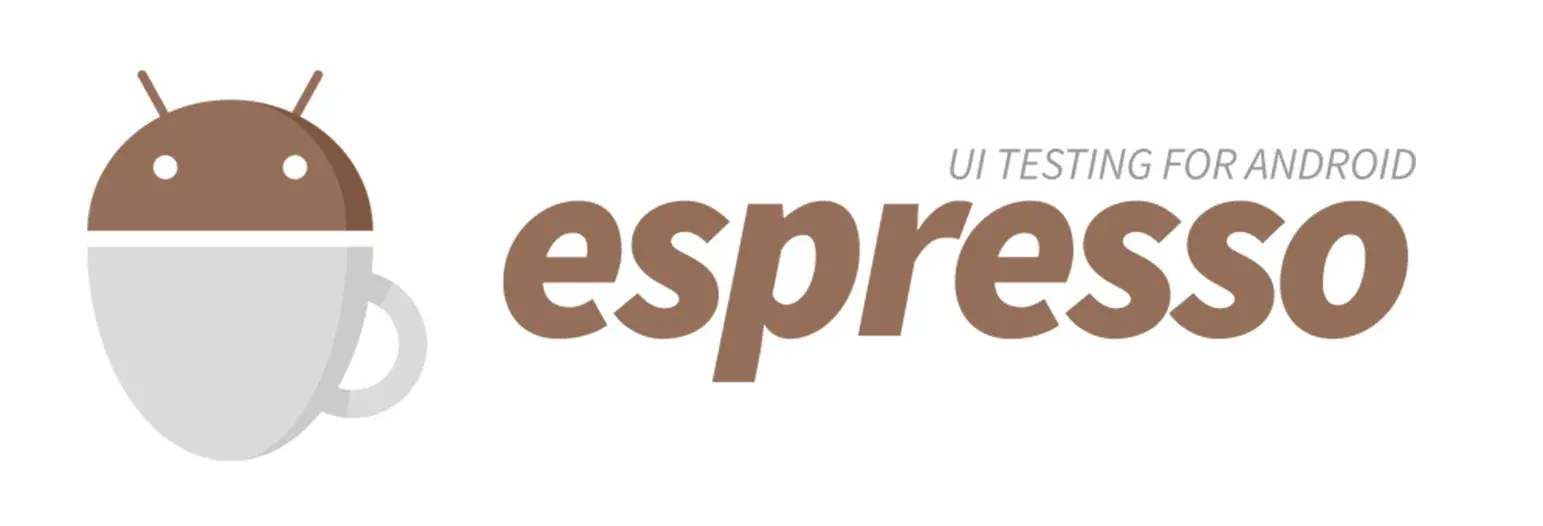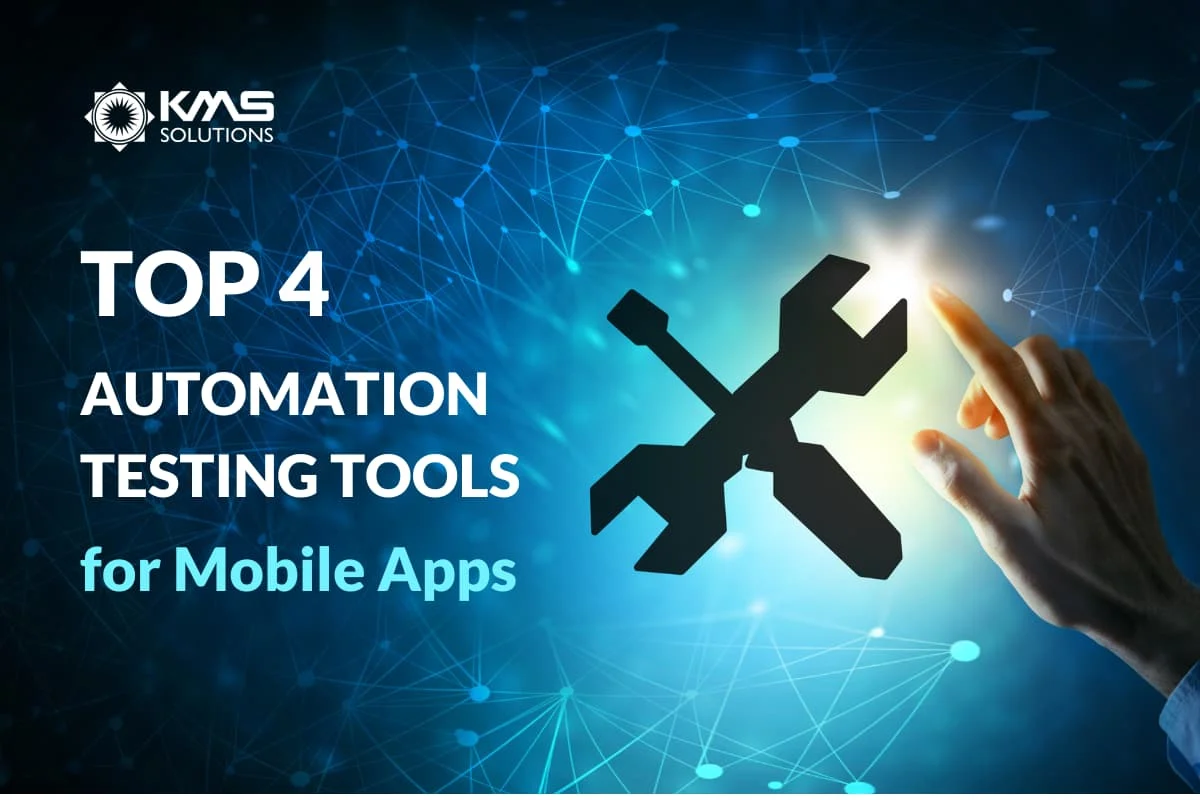With the launch of a host of new applications and online capabilities, user’s expectations naturally rise, underscoring the need for robust mobile app testing on all new projects.
With smartphone use projected to reach 7.7 billion by 2028, companies are increasingly investing in advanced mobile testing tools. These tools are also essential for handling the diverse and expanding mobile app landscape. Many developers and testers are turning to automated testing tools to speed up testing, enhance efficiency, and detect issues early, streamlining the development process and ensuring high-quality mobile applications.
In this article, our experts at KMS Solutions will explore some popular automated testing tools for mobile apps.
What are Mobile Automation Testing Tools?
Mobile automation testing leverages test automation tools and scripts to evaluate the functionality, performance, and user experience of mobile apps across different devices and operating systems like iOS and Android.
The main objective of mobile automation testing is to enhance the quality and dependability of mobile applications by identifying and mitigating defects and regressions. The process itself requires the development and execution of test scripts that automate user interactions with a mobile application, mimicking user behaviours such as tapping buttons, typing text, swiping, and scrolling to to ensure user-friendly experience.
Popular Mobile Automated Testing Tools
Mobile Automation Testing Tool #1: Katalon

The Katalon Platform stands out as a comprehensive automation testing tool for mobile, web, API, and desktop environments. The platform involves carefully designed features to simplify the development of test automation frameworks by providing low-code options, removing the need for extensive programming skills.
Katalon Studio supports both Android and iOS platforms and is compatible with various operating systems, including Windows, macOS, and Linux.
Key Features:
- Pre-defined automation testing framework: developed on top of Appium and Selenium WebDriver, ensuring extensive compatibility and integration with your ecosystem.
- Low-code practice with AI support: create test cases rapidly for Android or iOS platforms using low-code functionalities and advanced AI-driven capabilities.
- Seamless integration: integrate with major CI/CD tools, including Jenkins, Bamboo, and Azure DevOps.
- Visual testing: through image recognition to pinpoint UI elements.
- Cross-platform testing: perform parallel testing for native, web, and hybrid mobile apps across a wide array of devices, operating systems, and browsers.
- Real device cloud: Perform comprehensive testing of functionality and behavioural patterns remotely.
- Emulators and simulators: quickly and cost-effectively expand your automated testing capabilities to generate extensive results in the early stages.
- Free educational materials through Katalon Academy: including technical guides, sample projects, and instructional videos.
Katalon Studio enhances test automation efficiency and adaptability, making it an excellent choice for teams seeking robust testing solutions. There are also both free and flexible paid plans available.
With over 15 years of proven expertise in empowering the testing process of many businesses in the Asia Pacific region and a strategic partner of Katalon for many years, KMS Solutions, together with Katalon, helps clients:
- Eliminate the bottleneck in software testing caused by complex test cases, resource constraints, integration challenges, and incomplete requirements, etc.
- Automate regression testing to minimise human errors and enhance efficiency
- Accelerate product release, saving up to 40% of delivery time.
- Implement an AI-driven testing approach encompassing self-healing tests, smart-wait execution, actionable insights, test-trained GPT, and autonomous testing.
Mobile Automation Testing Tool #2: Kobiton

Kobiton stands as a leading mobile device testing tool utilised by major corporations such as Coca-Cola, Uber, IBM, and AT&T.
Key Features:
- Offers comprehensive testing capabilities, including real-device testing, device lab management, and scriptless test automation.
- Supports functional, visual, and performance testing.
- Compatible with major testing frameworks like Appium, Selenium, XCUI, and Espresso.
- Streamlines the automation of test cases and the validation of UX and UI across all mobile devices, enabling the replication of user scenarios to pinpoint issues—without requiring coding knowledge.
- Suitable for all proficiency levels, Kobiton consolidates testing coverage, management, automation, and remote capabilities into a user-friendly platform.
- JetBrains
- Microsoft Visual Studios
- Travis CI
- TeamCity
- Jenkins
- Azure DevOps
- CircleCI
- Jira Software
- Xebialabs
Kobiton’s pricing starts at $75 per month for unlimited users, and it offers a 14-day free trial to assess its full range of functionalities.
Mobile Automation Testing Tool #3: Appium

Appium is a widely used open-source framework for automated mobile app testing, designed to automate native, hybrid, and mobile web applications for iOS and Android platforms.
Unlike some automation tools, Appium uses the WebDriver interface to execute test cases without requiring the app’s source code modifications.
Key Features:
- Testers can write scripts in various languages, such as Java, JavaScript, Ruby, PHP, Python, and C#, enhancing flexibility across different testing requirements.
- With its uniform API, Appium enables script reusability across Windows, iOS, and Android platforms, significantly reducing the development time and effort for cross-platform tests.
- The framework is adept at automating native, hybrid, and mobile web applications, catering to a broad spectrum of app testing needs.
- Appium integrates smoothly with various mobile app development frameworks, including React Native, Xamarin, and Flutter, supporting a streamlined workflow for developers.
- The suite includes tools such as Appium Desktop and Appium Inspector, which aid in inspecting app elements and creating effective test scripts.
These features make Appium a preferred choice for developers and testers looking for a robust and adaptable mobile automation testing framework.
Mobile Automation Testing Tool #4: Espresso

Espresso, developed by Google, is a specialised test automation framework for Android mobile application testing. It’s well-known among developers who work with native Android applications due to its platform-specific capabilities and user-friendly API. However, its application is limited to Android UI tests.
Key Features:
- Espresso supports Java and JUnit, making it suitable for testing native Android applications.
- The framework provides lightweight APIs, which simplify maintenance and enhance usability.
- Espresso automatically synchronises UI elements with testing actions, ensuring smooth operation during tests.
- It allows for Android UI tests to be compiled into APKs, facilitating straightforward deployment and testing.
- It is commonly utilised for both unit and black-box testing, providing a versatile testing solution.
Espresso is an open-source tool, making it accessible for developers looking to integrate robust UI testing into their Android development processes.
Elevate Your Business with Our Custom Mobile App Development & Testing Services
At KMS Solutions, we specialize in creating customized mobile applications that meet the unique needs and objectives of your business, while ensuring seamless performance and user experience across various platforms.
Moreover, we also offer comprehensive testing services to ensure the quality and security of your mobile app. Our testing process includes functionality testing, usability testing, performance testing, security testing, and compatibility testing across different devices and operating systems.
Are you prepared to fully harness the potential of mobile app development and automated digital testing for your business? Contact us at KMS Solutions today!








